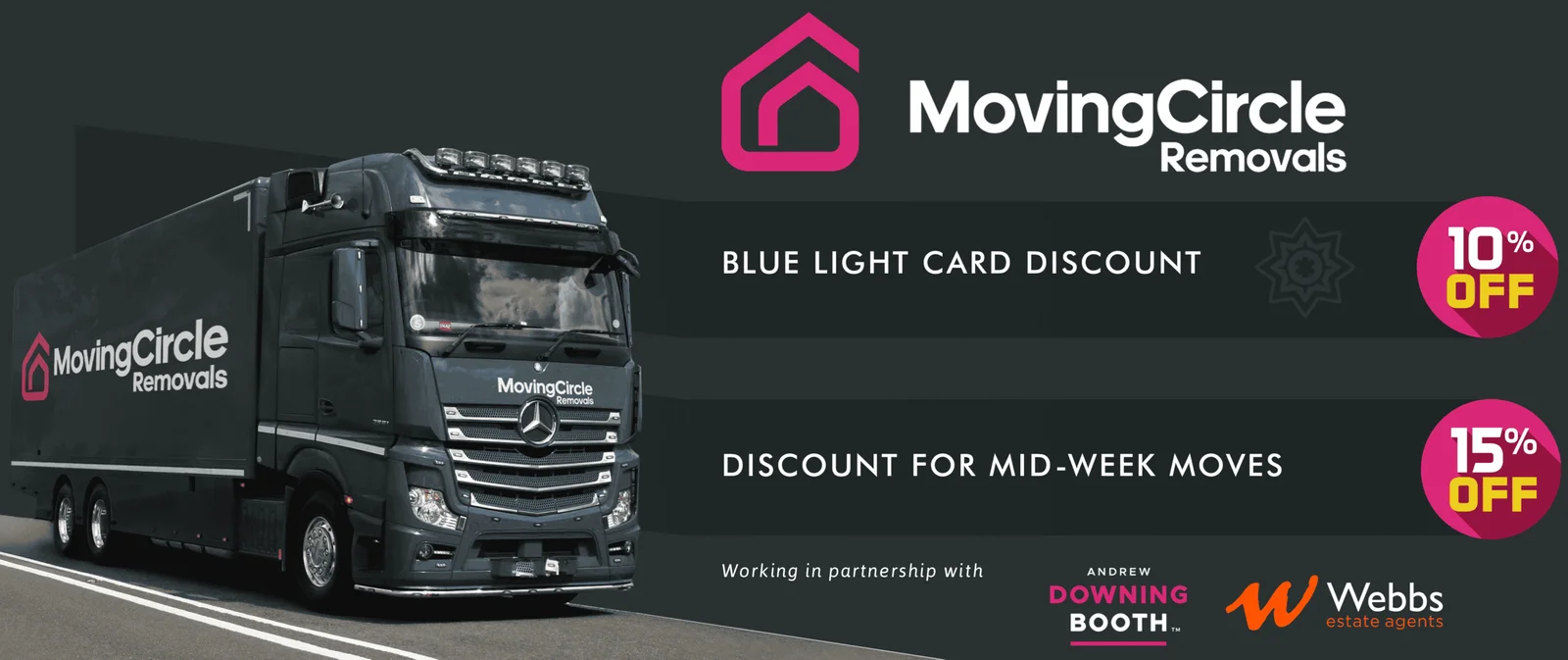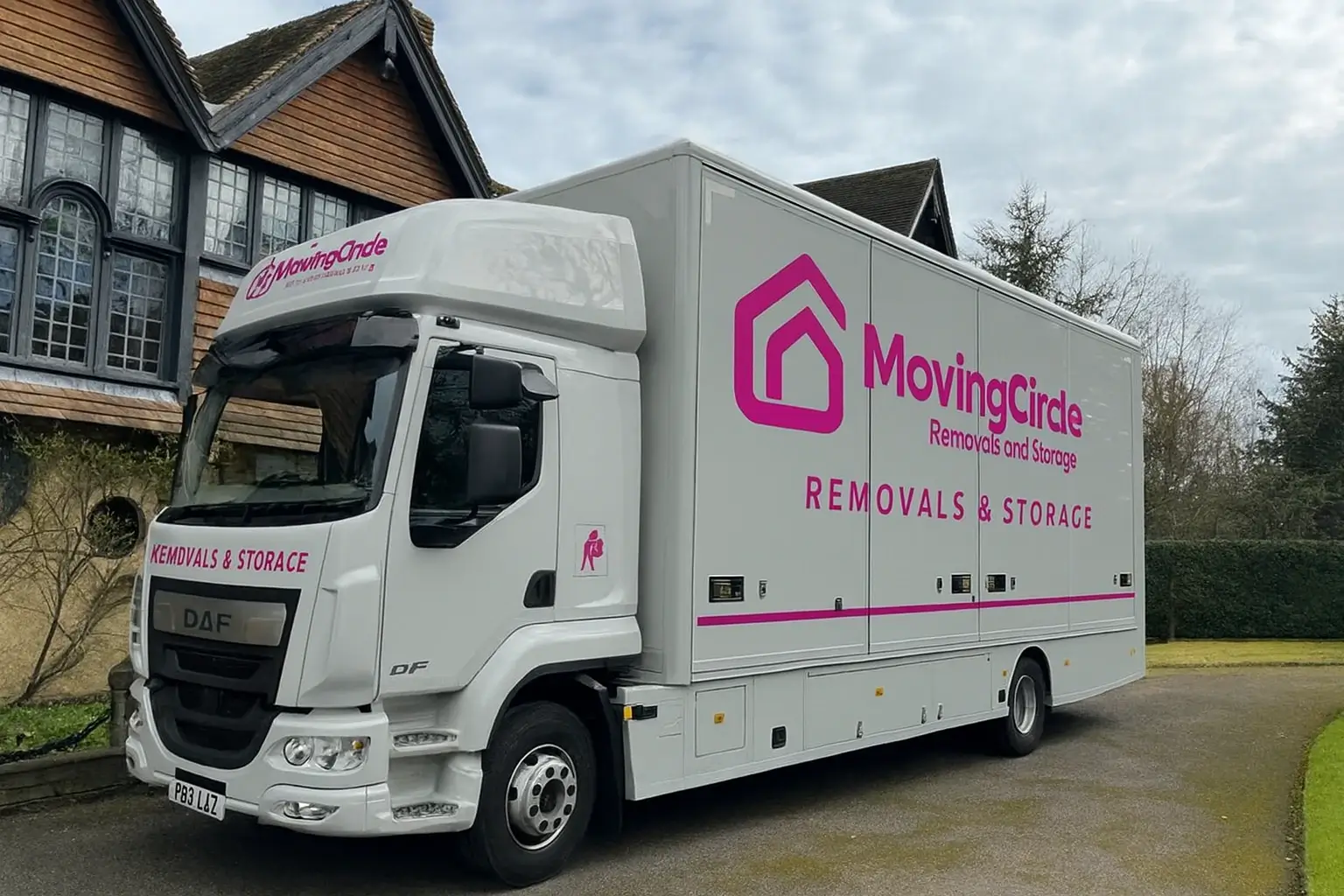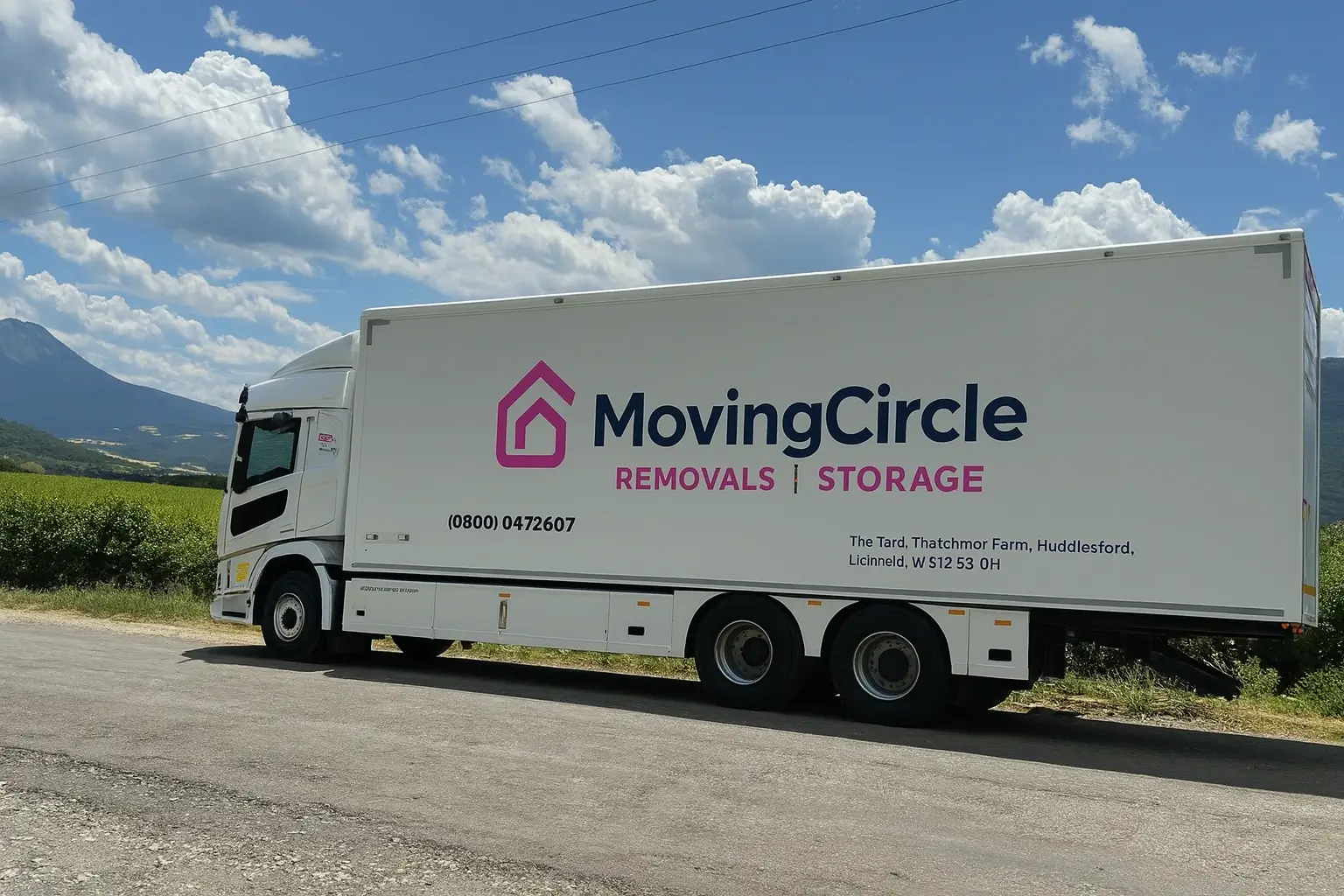Average Moving
Company Rates

Average Moving Company Rates Explained
Moving can be exciting but also challenging. Whether moving nearby or far, cost is a key factor. Hiring professional movers eases the stress but comes with a price. Knowing average moving company rates helps you plan your budget and avoid surprises.

10% Blue light card discount
We support all members of our armed forces residing in, NHS, police, etc. by offering a flat rate 10% discount to Blue Light Card holders.
15% Mid week move discount
Removals companies get booked up fast on Thursdays & Fridays; we incentivise a Monday-to-Wednesday move with a 15% discount.
Book now, pay the balance after you’ve moved in
Booking Moving Circle Removals and Storage after receiving your quotation is simple; just click the green button to reserve your move date.
What Influences Moving Company Rates
The total cost of a move can varies significantly depending on a range of factors. Most companies doesn’t have a one-size-fits-all price. Instead, their rates is tailored based on multiple variable, which includes the size of your move, the distance, the number of movers required, and any additional service you may need.
Local vs Long Distance Moves
One of the main factor that affect pricing is whether you’re moving locally or to a distant city. Local moves, typically within 50 miles, is usually charged by the hour. In the UK, the average hourly rate for a local move range between £50 to £100, depending on how many movers is involved and the size of the van required. A small flat might requires just two movers and a transit van, while a larger home might need a Luton van and three or more team members.
On the other hand, long-distance moves is calculated differently. Instead of hourly charges, these are typically price based on the total distance, the weight or volume of the items being moved, and the complexity of the job. The average long-distance move in the UK can cost anywhere from £500 to £2,000 or more, depending on the specifics of the relocation.

Size and Volume of Your Move
The amount of furniture and belongings you need to move play a crucial role in determining the cost. A studio apartment or one-bedroom flat will obviously cost much less to move than a fully furnished four-bedroom house. For instance, a basic move for a one-bedroom property may cost around £250–£400, while moving a three- or four-bedroom house may range from £800 to over £1,500, especially if packing services and large items like piano or garden furniture is involved.
Additional Services
Many moving companies offer optional service, such as packing, unpacking, furniture dismantling and reassembly, temporary storage, and the provision of packing materials like boxes and bubble wrap. While these services can saves you a lot of time and effort, they also add to the overall cost. For example:
- Packing services can add around £150–£300 depending on the number of items.
- Storage servicesis usually priced by volume and duration, with short-term storage starting from £20–£50 per week.
- Packing materials may be included or charged separately, with full moving kits costs between £30 to £100.
Seasonal Trends and When to Move
The time of year you schedule your move can have a big impact on cost. Most moving companies experience higher demand during the spring and summer months, especially between May and September. Families often prefer this period due to school holidays and more favourable weather, which drives prices up. If your schedule is flexible, you can often secure a better rate by moving during the autumn or winter, typically from October to March.
Additionally, moving during mid-week or mid-month can be more affordable compared to weekends or month-ends, which are peak periods due to tenancy renewals and salary cycles. Booking early also helps lock in lower rates and ensures availability, especially if you’re planning to move with a popular or high-rated removals company.
Location and Accessibility Impact
Your current and future location can also influence the final quote. For example, moves within busy urban areas like London or Manchester may involve parking restrictions, congestion zones, or narrow staircases, all of which can add to labour and time. In contrast, rural moves may have fewer access issues but longer travel distances, which can increase fuel costs or overnight charges for long-distance relocations.
Some companies also charge extra if movers must carry items long distances between the van and your property or if there’s no lift access in a multi-storey building. Being upfront about access challenges during the quoting stage will help avoid hidden fees later.


Book an online video removals survey at your convenience
Book a video call consultation with us, so we can assess the volume of what you would like to be moved and gather information needed in order to provide an accurate price. Alternatively, call us on 0800 0472607 to book a home visit.
However you book your removals survey, we can help tailor our service to your needs.

Understanding What’s Included in a Moving Quote and How to Avoid Hidden Costs
When planning a move, getting a clear and comprehensive quote from your moving company is crucial. Not all quotes are created equal, and understanding what is included — and what isn’t — can save you from unexpected expenses later on.
What a Typical Moving Quote Includes
Most professional moving companies provide quotes that cover the basics such as:
Basic Equipment: Use of dollies, blankets, straps, and other standard moving equipment.
Labour Costs: This includes the number of movers assigned to your job and the estimated hours of work required.
Transportation: Charges for the vehicle, including fuel, tolls, and mileage, especially for long-distance moves.
Loading and Unloading: Time spent packing your items into the truck at your old home and unpacking them at your new place.
Common Additional Charges to Watch For
While the core services are often clearly listed, some companies may charge extra for:
Insurance: Basic liability insurance is usually included, but for valuable items, you might want to purchase additional coverage.
Packing Services and Materials: Professional packing can save time but expect an additional fee if you ask movers to pack fragile or bulky items. Packing materials like boxes, bubble wrap, and tape may also be charged separately.
Furniture Dismantling and Reassembly: Some items, such as beds, wardrobes, or large furniture, may need to be taken apart and put back together.
Stairs and Elevator Usage: If movers need to carry items up or down multiple flights of stairs or use a small or slow elevator, this can increase labour time and cost.
Long Carry Fees: Charges may apply if movers have to transport items a long distance from your door to the moving van, especially in rural areas or locations with restricted vehicle access.
Storage: If you require temporary storage during your move, expect extra fees depending on the amount of space and duration.
How to Avoid Hidden Costs
To avoid surprises on moving day, it’s essential to:
Read Reviews and Check Credentials: Reputable companies are transparent about pricing and will not add hidden fees.
Get a Written, Itemised Quote: This should detail every service and cost included so you can compare quotes fairly.
Ask About Potential Extra Fees: Clarify what might cause additional charges, such as heavy items, narrow staircases, or long carry distances.
Provide Accurate Information: Give the movers precise details about your inventory, property access, and any special requirements.
Planning Ahead to Stay Within Budget
If you want to control costs, consider:
Multiple Quotes: Don’t settle for the first estimate. Compare at least three detailed quotes to find the best value.
Packing Yourself: Doing your own packing saves labour costs but requires time and effort.
Decluttering: The less you move, the cheaper your move will be. Sell, donate, or recycle unwanted items.
Flexible Dates: Being flexible with your moving date can help you secure a lower rate, especially during off-peak times.
Final Thoughts
Moving can be a complex and costly process, but understanding the components of moving company rates and what influences them helps you budget wisely and avoid stress. Always communicate openly with your chosen movers, plan your move carefully, and be proactive about managing costs. With the right information and preparation, your move can be a smooth and affordable experience.

Subscribe to our Emails
Sign to our weekly newsletters if you are an Estate Agent, Removals company requiring Trade services or a business regularly dealing with client relocations
Reviews
[reviews-feed feed=1]








Today’s Articles
Choose a company that is Legal
Choose a company that’s Legal When planning a move—whether it’s across town or to another country—ch…
Best Movers in Stafford
It’s Subjective but here are some facts. There are lots of moving companies in Stafford, but do…
Why overloading is Bad
Why overloading is bad Overloading a 3.5-tonne (3.5t) van may seem like a way to save time or i…


